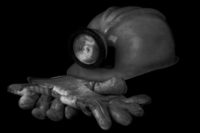 Fears of discrimination and retaliation sometimes prevent miners from objecting to health and safety violations, according to Mine Safety and Health Administration chief Joseph Main.
Fears of discrimination and retaliation sometimes prevent miners from objecting to health and safety violations, according to Mine Safety and Health Administration chief Joseph Main.
Writing on Work in Progress, the Official Blog of the U.S. Department of Labor, Main said that became apparent during congressional hearings held in the wake of the Upper Big Branch Mine disaster.
“Statements from miners and family members of the miners who died indicated that mine employees had been reluctant to speak out about safety conditions in existence prior to the April 2010 explosion, fearing retaliation by management,” wrote Main.
According to Section 105(c) of the Federal Mine Safety and Health Act of 1977, a miner cannot be discharged, discriminated against or interfered with in the exercise of statutory rights because he or she has filed a complaint alleging a health or safety violation.
Main said because some mine operators disregard the law and suspend or fire miners who become “too vocal” about mining conditions, it is vital to educate miners about their rights and to promptly and thoroughly investigate discrimination complaints.
“Those efforts are working. The number of requests for temporary reinstatements the Labor Department submitted on behalf of miners who filed discrimination complaints more than tripled from the period of fiscal years 2007-2009 to the period of FY 2010-2012 (through July 31, 2012), increasing from 22 to 71. Furthermore, the Labor Department filed 70 complaints alleging mine safety discrimination during the period of FY 2010-2012 (through July 31, 2012), up from 39 from FY 2007-2009.
The MSHA has released new Web-based training tools for miners, including “A Guide to Miners’ Rights and Responsibilities“; an electronic form for filing an anonymous hazard complaint; a discrimination complaint packet; information about black lung benefits and resources; and a compendium of online videos addressing miners’ concerns about unsafe working conditions, hiring decisions, how to refuse unsafe work, the role of supervisors and the role of miners’ representatives who travel with federal inspectors.
Click here to read the entire blog post.
